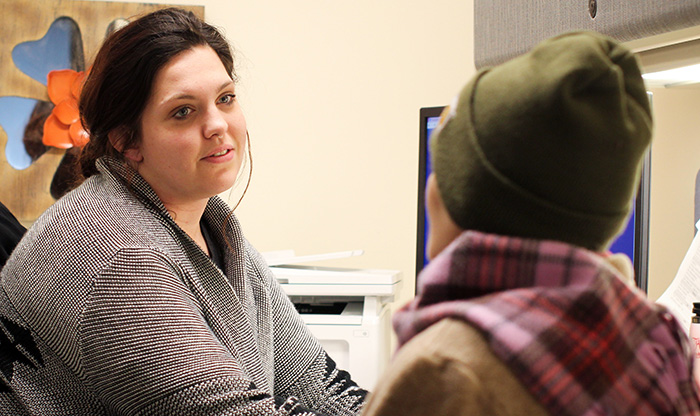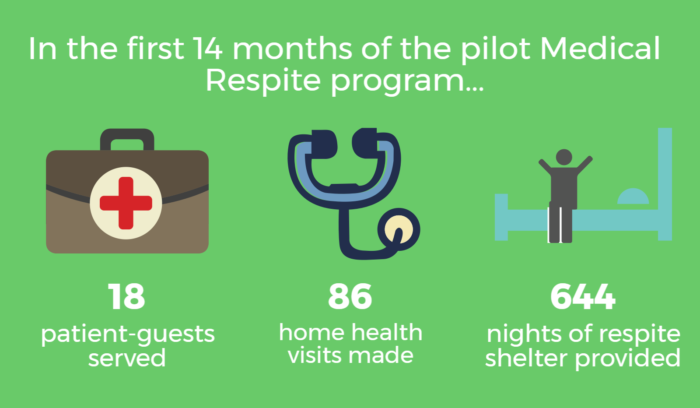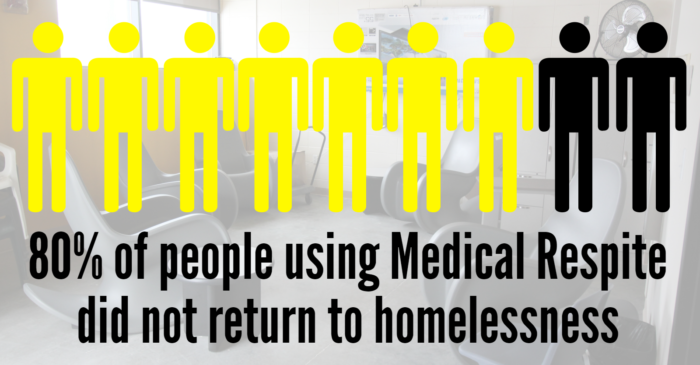
Medical Recovery at Brother Francis Shelter
People experiencing homelessness typically do not seek or complete medical treatment for many reasons. The addition of the Medical Respite program and expanded primary care services through the Caring Clinic at Brother Francis Shelter allows us to be proactive in preventing treatable conditions from becoming an emergency.
Ed, a seasonal worker in his 50s, couldn’t make ends meet and lost his home. A knee injury left him on crutches. Ed began recovery at Providence, but but when he no longer required a hospital bed and service, he was discharged to Medical Respite at the shelter.
In the pilot program, Providence Home Health Care provided skilled home care services like physical therapy, speech therapy and home health aide to shelter guests on an as-needed basis.
Ed works in fish processing and on farms in season. Staying in a quiet space to recover and undergo physical therapy allows him to regain his strength—inching one day closer to the field.
“My knee injury is just an injury, it’s not permanent,” Ed says. “Now it’s a waiting game. After I heal the knee and get off the crutches, I will go back to work.”

Another Brother Francis Shelter guest is hopeful for her prospect of entering Medical Respite.
Vickie, a lifelong Alaskan, moved to Anchorage from Seward to treat cancer due to appointments becoming more frequent. Vickie has now been in Anchorage for 3 months, seeing doctors for cancer among other medical issues.
“I’m just trying to get by right now, but I think about my grandchildren every single day,” Vickie says. “I’m just thankful for everyone here at the shelter.”
Vickie’s kids and grandchildren live in the Mat-Su Valley, and she hopes to see them again soon, but says she is working toward becoming healthier. She visits the Caring Clinic when she feels sick, but says she may be closer to receiving a much needed surgery if she can recuperate in the Medical Respite program.
The Medical Respite case manager is the final piece in making the program work. The case manager connects patient-guests recovering from an illness or injury to housing. In the pilot respite program, 80% of men and women did not return to homelessness after staying in respite.

In addition to helping clients, programs like this bring great savings in the use of emergency services for the whole community. The evidence-based Medical Respite program in Santa Rosa, California, saw nearly $17.3 million in savings over 4 years. That is more than 10 times the return on investment in the program.
Read more stories of hope at CSS in the Media or in the CSS Faces Of Hope Spring 2017 Newsletter.